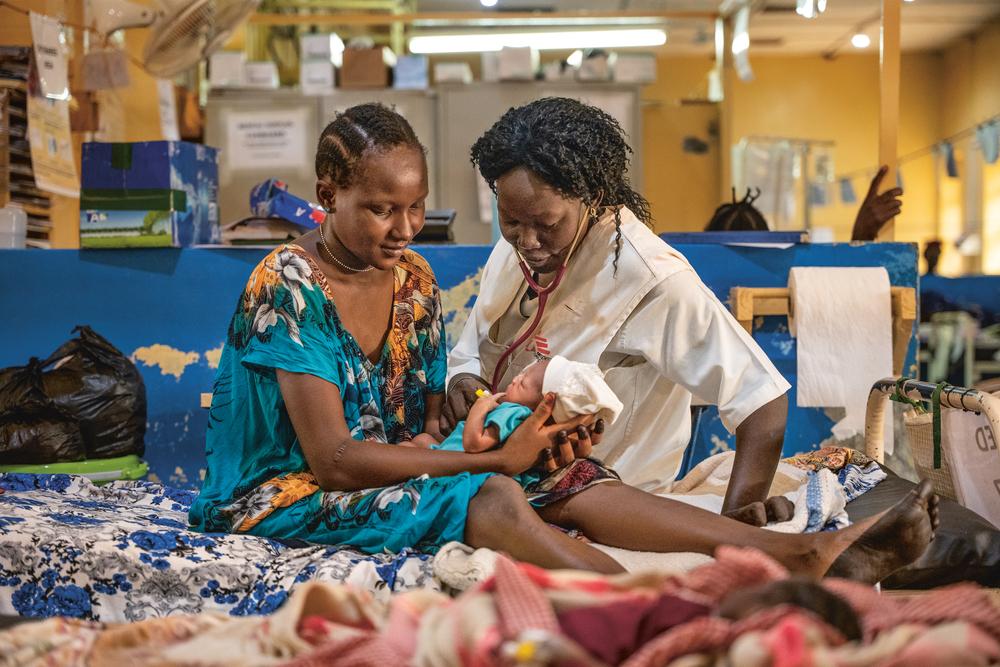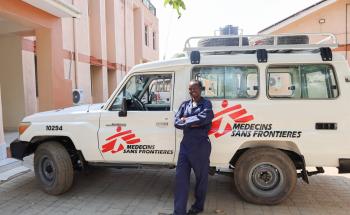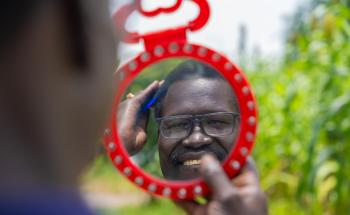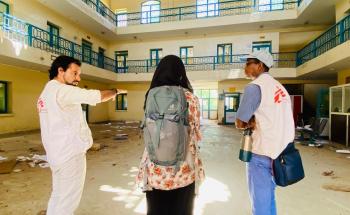Doctors Without Borders (MSF) runs the maternity unit in Aweil State Hospital in Northern Bahr el Ghazal, South Sudan. Our team of midwives is there night and day to ensure that women living in the state can deliver safely. South Sudan has the highest maternal mortality rate of any country in the world.
When a mother smiles at her newborn for the first time, Martha Abuk Jacob is happy—that everything went well and that she was able to help as a midwife—neither of which she takes for granted.
Being a midwife is the best job I can imagine - every day since I started training ten years ago. One of the saddest moments in my life led me down this path. I was eight years old when my mother went into labour. At that time, my home country, South Sudan, was fighting for independence from Sudan. It was far too dangerous to go to hospital. After the birth, my mother started bleeding heavily. She died shortly after giving birth to my younger sister. The pain and grief made me want to become a midwife. I wanted to do everything I could to save other families from such a terrible experience.
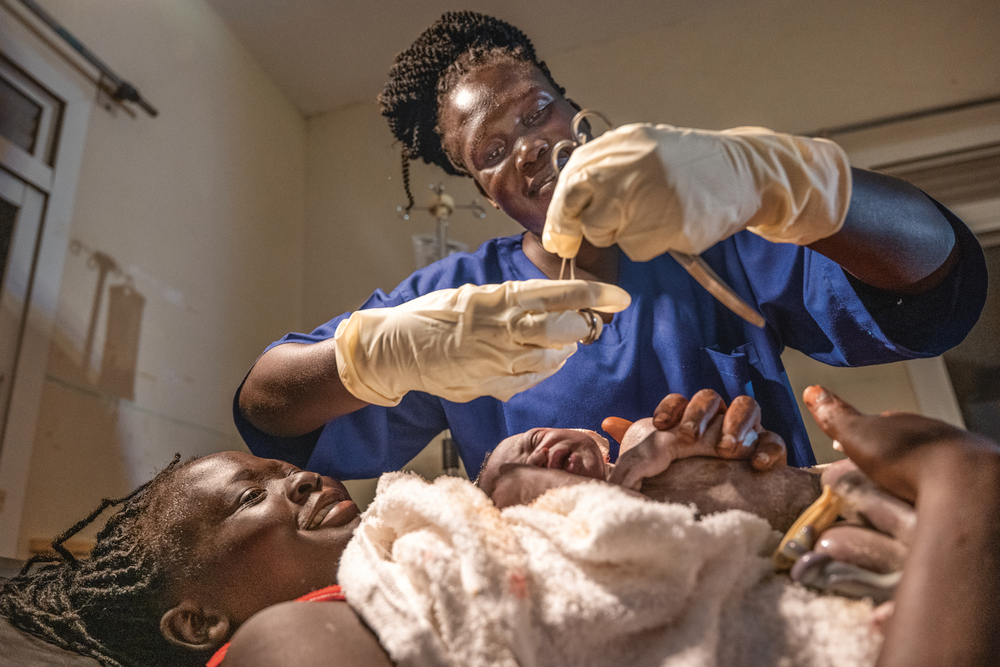
That's why I became a midwife | South Sudan
But my path there was not easy. I became pregnant myself at the age of 16. I raised my son alone at my father's house. My father did everything he could to ensure that I was able to complete my school education, even though the school fees were a huge burden. Then, the South Sudanese government launched a free, three-year training course for midwives to reduce the high maternal mortality rate in the country. That was a huge stroke of luck for me. I applied and got a place - and actually managed to become a midwife.
I have worked for MSF at the hospital in Aweil in the north of the country since 2016. When I start my shift early in the morning, I can see dozens of women from afar in the square in front of our maternity ward. They are all heavily pregnant. Some are pacing back and forth - the contractions have already started.
Save Mothers in South Sudan
msf.org.zaAlmost 95% of all maternal deaths occurred in low and lower-middle-income countries in 2020. Care by skilled health professionals before, during and after childbirth can save the lives of women and newborns. – WHO
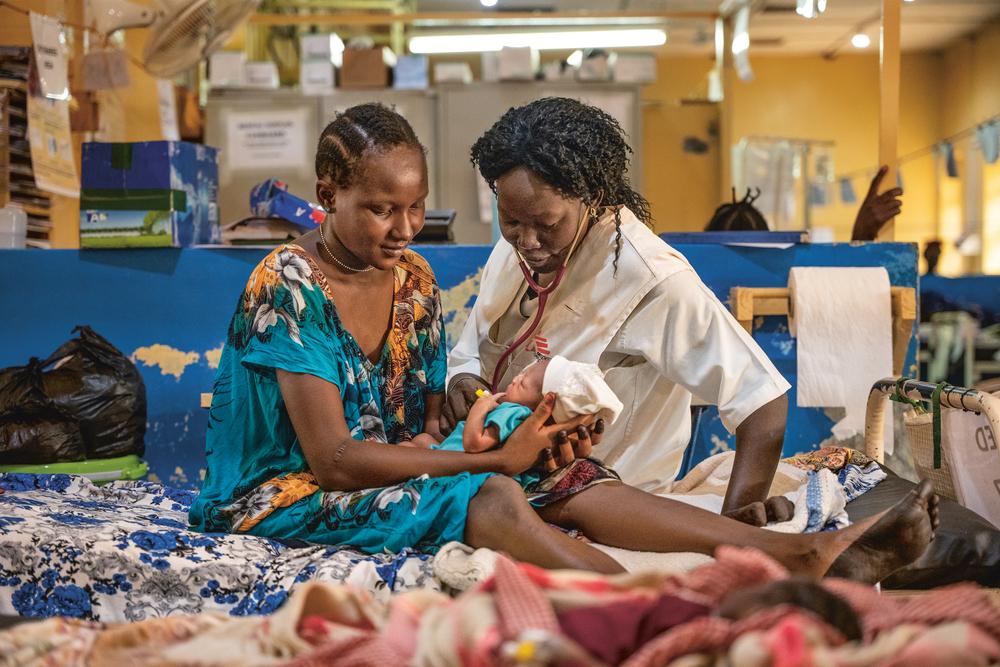
Our hospital offers the only free care in the entire region - for well over a million people. I am happy about every woman who reaches us early, despite the often long distances and is able to give birth safely in our hospital. The already few clinics often lack electricity, operating theatres, medication and ultrasound equipment. Far too many women and their babies die.
Every woman in South Sudan is probably aware of the great risks of pregnancy and childbirth. I was, therefore, incredibly relieved that I was able to give birth to three of my four children at our maternity ward in Aweil. I knew that I would receive the best possible medical help there. I feel the same gratitude from all the women I support with my work in our hospital. I also have another career goal in mind: I want to study medicine and become a gynaecologist. I have already started saving money for this and have also applied for a scholarship. I'm sure I'll fulfil this professional dream, too.
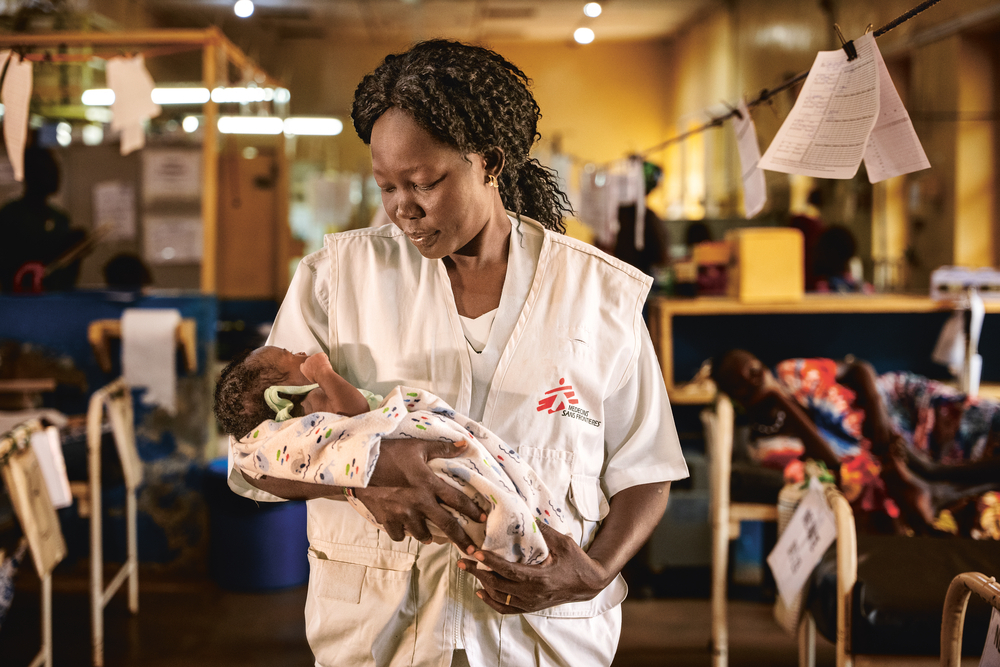
Maternity Unit Staff Interviews | South Sudan
Maternal Health FAQ
Most maternal deaths occur just before, during or just after delivery. Timely access to qualified staff can be a question of life or death for women experiencing complications during childbirth.
MSF works to remedy the 'three delays' women face in receiving care during childbirth: the delay in deciding to seek care, the delay in reaching a health facility, and the delay in receiving adequate treatment at the facility. Apart from emergency obstetric and newborn care, we also provide pre- and postnatal care and contraceptive services.
Disease outbreaks can disproportionally affect pregnant women, particularly in the later stages of pregnancy. Pregnant women are more susceptible to the effects of malaria infection, which can lead to maternal death, miscarriage or stillbirth.
In some of our projects up to 50 per cent of women in antenatal care may test positive for malaria. Hepatitis E has a significantly higher death rate amongst pregnant women, reaching 25 per cent for women in the third trimester. In some cases, cholera can lead to premature labour or obstetric complications.
Obstructed and prolonged labour can result in a fistula: a hole between the vagina and bladder, the vagina and rectum, or both. The result is urinary and/or faecal incontinence. Women with fistulas live in shame and are often rejected by their families and communities. The operation to close a fistula requires specialised surgical skills.
MSF has organised 'fistula camps' to provide surgery to women with fistula. Fistula can be easily prevented with access to skilled birth attendants and adequate management of obstructed labour, namely caesarean section.
